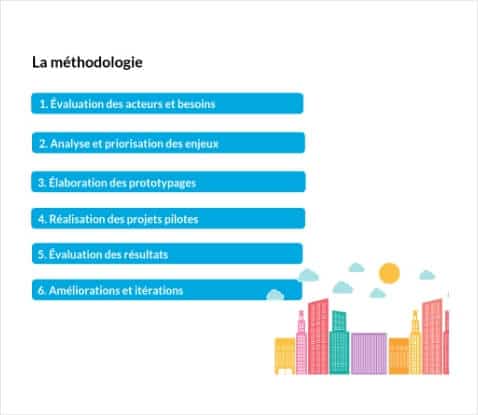
MOBIS team is inspired by open innovation, co-regulation methods and the approach of innovative firms to support territories, communities and businesses in their vision towards sustainable mobility.
We provide support to companies, public and private institutions and organisations wishing to take action on climate change by implementing innovative and intelligent solutions to meet the challenges of sustainable mobility.


We provide organisations with in-depth knowledge and contextualised analysis and advice to guide them in their strategic mobility planning.
We support organisations in the development and deployment of their projects in order to accelerate performance and to achieve their objectives.
We offer both support for the design and implementation of one-time major projects, as well as for the improvement of ongoing projects management within organisations.
As a genuine mobility services aggregator, we can also act as a project operator to structure and accelerate the deployment of initiatives in the field.
Nowadays, to be efficient and sustainable, mobility must simultaneously be intelligent, relying on the convergence of technologies, infrastructures and vehicles, and directly linked to our society’s challenges.
Bringing startups closer to stakeholders through an approach focused on urban labs and experimentation grounds is the MOBIS accelerator key factor for your sustainable mobility solutions validation.
Learn More
An ecological approach that consists of reducing the negative externalities of freight transport.
Learn More
Use the potential of digital intelligence and shared data exploitation for sustainable mobility decision-making.
Learn More
To complement the traditional transport offer, new mobility represent a set of transport modes or services, interconnected or not, that meet the various mobility needs of people.
Learn More
Our Approaches and Methodology
Focus on Goals that Generate Positive Impacts
The MOBIS approach was created to support Quebec’s transition towards a carbon-neutral future while proposing solutions to various societal problems related to mobility. Our methodology puts us both at the center of reflections and at the heart of the action to build evolution pathways allowing Quebec to achieve its vision

